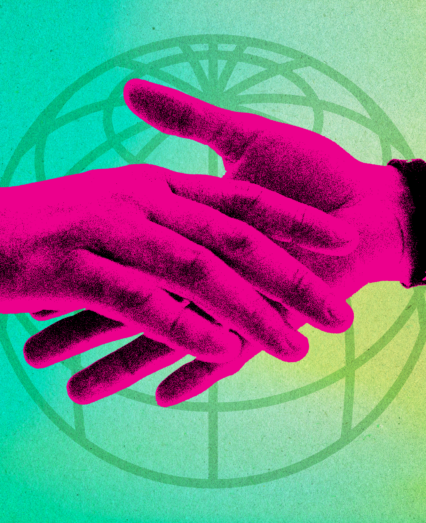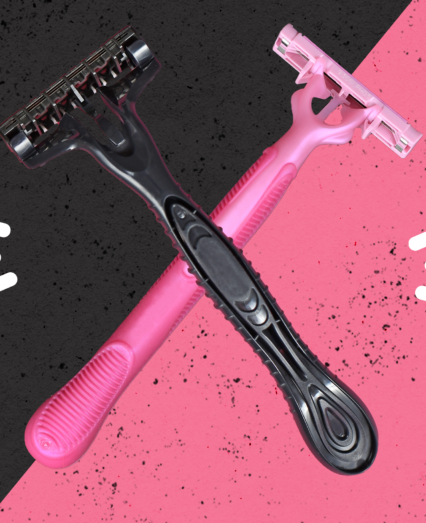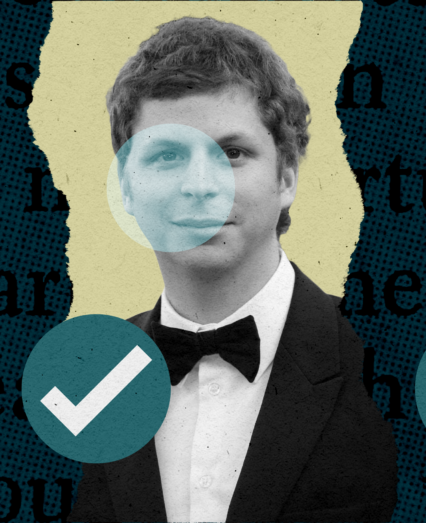As a writer, tweeter, content creator, former English major and general respecter of intellectual property, one of my all-time pet peeves is plagiarism. I hate it and you should too.
You should hate it because it’s unethical, it’s rampant and, in many cases, it’s illegal.
I say “many cases” rather than “all cases” because, as we’ve reached this magical age of Web 2.0 — an age of, no longer solely passive, but interactive experiences in digital spaces — the concept of “plagiarism,” as well as what’s illegal and what’s not, have become far more difficult to define.
Everybody has a Facebook, most people have Twitter and Instagram and a good portion of people have blogs. The physical act of posting on each of these is incredibly easy. What is not always easy is coming up with original, thoughtful, effective and engaging content to actually post. What is always easy (and tempting) is selecting, copying and pasting someone else’s thoughts.
But who cares if you do though, right? It’s just a stupid tweet.
It’s not some scholarly paper.
It’s meaningless — a 140-character piece of content, ephemeral in nature, here and gone just like that.
I’m here to tell you that you’re wrong and that there’s potentially more at stake than just the self-loathing and guilty conscience that come along with being an unoriginal tool who can’t come up with their own ideas.
Let’s have a look at some problem areas where these plagiarists can potentially affect you and how you can (or cannot) do anything about it:
BLOGS
Why you should care about stolen blog content:
If you or your company has a blog, you should obviously care about Search Engine Optimization (SEO) and, therefore, should care about stolen content from your blog. When another blog scrapes your content, you’re not only being robbed of the hard work that was put into creation, but potentially on your search engine rankings and, ultimately, page views.
Good, original content is the backbone to content marketing and a basic component of any on-page SEO strategy. While Google has gradually gotten better at detecting the original creator of a certain piece of content, republication without credit and/or backlinks can still cause trouble for your website.
In the worst-case scenario, Google could view duplicate content as spam and, as a result, bury both sites in its rankings. All the hard work put into your content strategy and delivery has gone to waste.
In any case, your best bet would be to take action as quickly as possible.
What you can do about stolen blog content:
First things first: You need to find out if anyone is scraping your content. Find out by following these instructions.
If you’ve found out that someone is, I suggest that you do what you can to reach out to this person and urge them to cease and desist their behavior. Give them the benefit of the doubt.
If you don’t have any luck with that, you then need to file a Digital Millennium Copyright Act (DMCA) compliant to Google here. You can have your site established as DMCA Protected and have your duplicator removed from Google’s rankings.
Why you should care about stolen content on Instagram:
Instagram is trekking through some murky waters when it comes to stolen content. On one hand, you’re looking at the idea of ownership over the photos that you have personally taken and subsequently posted. This, specifically, is something that Instagram addresses in their Terms of Use (which nobody probably ever reads):
You represent and warrant that: (i) you own the Content posted by you on or through the Service or otherwise have the right to grant the rights and licenses set forth in these Terms of Use.
Great. So you technically have grounds to take action if someone steals your content on Instagram.
Does it usually make a difference? Nah.
The sad truth is that, everyday, people on Instagram profit from other people’s content. Someone could be profiting off of something of yours right now and you have no idea — whether it be in the form of a physical product, a photo contest or worse: a potential television show and multi-million dollar deal with a huge talent agency.
The last of these is most concerning not only because the practice in question is incredibly popular, but because of the fact that it has to do with cross-platform content theft: popular Instagram users (The Fat Jew, FuckJerry, et al) who screenshot jokes from Twitter, purposefully crop the username out of the image, and post it to their own Instagram account with the implication that they have come up with the idea themselves.
Example:
Just a man enjoying a bottle of wine on a romantic date with his bulldog. pic.twitter.com/inpIicQ6yj
— Ben Rosen (@Rosen) August 14, 2015
When it comes to giving “credit,” he’s just lazy about it and not even accurate—as you can see in the post above. It tends to be the case with the majority of these plagiarists. It’s OK though, because when he doesn’t give credit, he’s sorry.
@thepatrickwalsh it was on a blog dude. Apologies.
— The Fat Jew (@FATJEW) June 8, 2014
.@FATJEW Then credit me! Don’t pass it off as your own & rack up thousands of “likes!” You don’t see that’s wrong? Apology not accepted.
— Patrick Walsh (@thepatrickwalsh) June 8, 2014
Any of these users will argue that what they do is called “curation” of popular web content. But the un-credited hardworking and talented comedians, writers and brands who are trying to make an honest living will tell you what they do is called “bullshit.”
What you can do about stolen content on Instagram:
Again: Ask them to take it down. They won’t, because they’ll call themselves “curators” as defense. When they do, file a Copyright Report Form here.
Did someone super popular like The Fat Jew screenshot one of your tweets without crediting you? Good luck, he’s been kicked off the platform several times but is still going strong with over 8 million followers. The best thing you can probably do is join the shaming movement against him.
Why you should care about stolen tweets:
Twitter is awesome because it is full of some of the most creatively talented people in the world who crank out useful, insightful and hilarious ideas on a daily basis.
Twitter is awful because it is full of some of the most popularity-hungry people in the world who can simply lift someone else’s tweet — verbatim — and paste it onto their own account to reap all of the benefits of internet fame for their unoriginal self.
Are there any real consequences for that type of behavior on Twitter? Aside from public shaming when exposed on a mass-scale (as illustrated by the infamous case of @prodigalsam), the answer is no.
Once again you’re screwed out of the true benefits of your own hard work because someone would rather endorse themselves as creative rather than endorse the original creator with a simple retweet. Good luck proving legal ownership of a ”thought” that any person can enthusiastically claim had struck them the same way it struck you.
It may seem insane to make such a fuss about this matter but any writer, comedian or creator for a disruptive brand, among others, can vouch for the fact that writing an effective tweet is not always so easy.
Shout out to the dozens of Will Ferrell and Worldstar “parody” accounts who all post identical content everyday but still somehow each have upwards of hundreds of thousands of followers —popularity of which they’re profiting from in one way or another.
@WORLDSTAR Will Ferrell said that years ago the exact same post
— Johann Patterson (@johannpatterson) February 21, 2016
What can you do about stolen tweets:
Again, contact the user and address the issue at hand. If that doesn’t work, which it probably won’t because they have already stooped to the level of stealing your stuff in the first place, then you’re as good as screwed.
Twitter is the world’s largest hotbed for plagiarism because it’s so easy to get away with.
IMPLICATIONS
The real issue here is that, still, social media is not entirely respected as a legitimate medium for creation.
I’m not saying that it necessarily should be in all cases, because it would be insane for anyone to hold exclusive rights to specific phrases about what you woke up and did in the morning.
But, realistically, there should be some type of solution to the rampant practice of mass scale creative content theft. For people who write, that’s a service — and service theft is distinctively punished, in one way or another, throughout almost every other industry.
I don’t have all of the answers on how to necessarily enact such a thing, but I do know one thing for certain: We have a problem.
I know you’ve at least caught wind of the Fat Jew controversy that really hit the fan in 2015, so let me have it in the comments. What do you think about plagiarism on social media?


